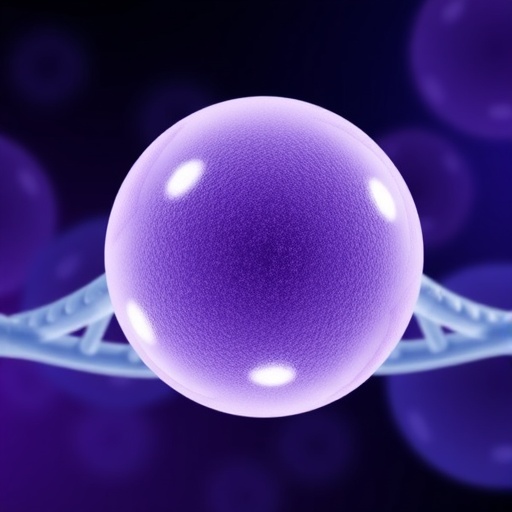In a groundbreaking advance that could reshape the personalized treatment landscape for breast cancer patients, a comprehensive study has illuminated how genetic profiles and tamoxifen dosing influence survival outcomes. Published in BMC Cancer in 2025, this extensive real-world analysis delves deeply into the clinical and pharmacogenomic factors that determine prognosis for women undergoing tamoxifen therapy. The findings extend beyond conventional wisdom, underscoring the pivotal role of the CYP2D6*4 genetic variant and the fine-tuning of tamoxifen dosage in optimizing treatment efficacy.
Tamoxifen, an established selective estrogen receptor modulator, has long been a frontline therapy for hormone receptor-positive breast cancer. However, interindividual variability in treatment response remains a major clinical challenge. This variability often stems from differences in drug metabolism, which is largely governed by the cytochrome P450 2D6 (CYP2D6) enzyme. The CYP2D6*4 allele, a common genetic variant known to reduce enzymatic function, has been hypothesized but not definitively confirmed as a predictor of poorer outcomes in tamoxifen-treated patients. The present study provides compelling real-world evidence dissecting this relationship in an unprecedentedly large patient cohort.
Utilizing a robust retrospective design, researchers analyzed data from 3,218 female breast cancer patients who initiated tamoxifen treatment and were followed for a median of 7.5 years. This long-term follow-up allowed for an in-depth examination of overall survival (OS) and breast cancer-specific survival (BCS) outcomes. To complement this, a genotyped subgroup of 303 patients, with a median follow-up of nearly a decade, was scrutinized to understand the impact of CYP2D6*4 genetic status on mortality risks.
One of the pivotal revelations from this study is the dose-dependent benefit associated with tamoxifen. Incremental increases of 20 mg over a six-month period correlated with a significant 1.6% decrease in all-cause mortality and a 1.9% lower risk of breast cancer-specific death. These figures signify that even modest dose adjustments carry clinically meaningful implications, advocating for more nuanced dosing regimens that could be tailored to individual patient profiles in the future.
Furthermore, the study sheds light on the stark consequences of harboring the CYP2D64 variant. Patients heterozygous for this allele exhibited a 76% increased risk of mortality from any cause compared to non-carriers. More strikingly, carriers of one or two copies of CYP2D64 faced amplified breast cancer-specific mortality risks—3.7-fold and 11.6-fold increases for heterozygotes and homozygotes, respectively. These magnitudes underscore the critical nature of pharmacogenomic testing in delineating patient subgroups who may derive suboptimal benefit from tamoxifen monotherapy.
This investigation resolutely challenges prior contradictory findings regarding the clinical relevance of CYP2D6 genotyping. A key insight offered is the importance of extended follow-up durations to capture the true longitudinal impact of genetic variants on survival. Earlier studies with shorter observation windows may have underestimated or failed to observe these significant associations, explaining inconsistent results previously reported across the literature.
Mechanistically, reduced CYP2D6 enzymatic activity in 4 carriers compromises the bioactivation of tamoxifen into its more potent metabolites, such as endoxifen. Endoxifen exerts stronger anti-estrogenic effects, making its adequate formation essential for optimal therapeutic efficacy. This pharmacokinetic bottleneck linked to CYP2D64 impairs tamoxifen metabolism, leading to insufficient drug activation and poorer clinical outcomes observed in mutation carriers.
Clinical management strategies emerging from these findings could involve preemptive genotyping to stratify patients at diagnosis. Those identified as CYP2D6*4 carriers might benefit from alternative endocrine therapies, dose escalations, or adjunctive treatments to bypass metabolic shortcomings. Moreover, careful evaluation of drug-drug interactions that inhibit CYP2D6, potentially further reducing enzyme activity, is critical to avoid compromising treatment effectiveness.
This large-scale pharmacogenomic inquiry not only validates the prognostic significance of CYP2D6 variants but also highlights tamoxifen dose modulation as a viable lever to improve survival metrics. The extensive real-world dataset, coupled with longitudinal, genotype-informed analyses, presents a convincing argument for integrating pharmacogenomics into routine clinical decision-making frameworks within oncology.
The study’s implications extend broadly, advocating for personalized medicine paradigms where genetic testing informs therapeutics rather than employing a uniform, one-size-fits-all breast cancer treatment regimen. Incorporating CYP2D6 genotyping could markedly alter therapeutic trajectories and optimize outcomes for vast numbers of women receiving tamoxifen globally.
Nevertheless, the authors emphasize the necessity for corroborative prospective trials with even longer follow-up and larger genotyped cohorts to cement clinical guidelines. Until then, these results act as a clarion call for oncologists, researchers, and healthcare systems to reconsider current practice norms and embrace a genetics-driven approach to breast cancer management.
In summary, this pivotal investigation defines CYP2D6*4 as a critical prognostic biomarker and quantitatively links tamoxifen dosage to survival benefits in a comprehensive breast cancer population. It exemplifies how deep pharmacogenomic characterization combined with real-world evidence can unravel complexities underlying treatment response variability and pave the way toward precision oncology.
As the field moves forward, the integration of such insights promises to transform tamoxifen prescribing from a historical standard into a highly individualized intervention. This evolution will undoubtedly catalyze improved survival rates and quality of life for countless breast cancer patients around the world, marking a significant milestone in personalized cancer therapeutics.
Subject of Research: Pharmacogenomic and clinical predictors of survival in tamoxifen-treated female breast cancer patients, focusing on the impact of CYP2D6*4 genotype and tamoxifen dosing.
Article Title: Clinical and pharmacogenomic predictors of survival in tamoxifen treated breast cancer female patients: a real-world study.
Article References:
Al-Matrafi, A.R., Bedair, K.F., Srinivasan, S. et al. Clinical and pharmacogenomic predictors of survival in tamoxifen treated breast cancer female patients: a real-world study. BMC Cancer 25, 974 (2025). https://doi.org/10.1186/s12885-025-14162-4
Image Credits: Scienmag.com




